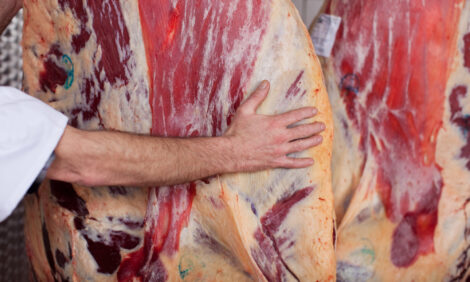



Ag Implications of US, European Market Volatility
ANALYSIS - If you think corn and soybeans have been volatile, you haven't seen anything yet was the opening message from Jim Wiesemeyer, senior vice president of Informa Economics, at a Commodity Classic education seminar in early March, writes Sarah Mikesell, TheCropSite senior editor."After the November 6th elections, Washington better have a leader from both the House and Senate, and definitely the White House," he said. "Because if we don't, we're going to be on a rocky road. What's happening in Europe will happen here, and that will translate into a Farm Bill. If they don't get the Farm Bill done this year, it's not going to get any better short term."
Debt, Debt and More Debt
Mr. Wiesemeyer explained there is no confidence in the US or in Europe that our leaders are getting their act together which is causing the uncertainty in the world. The US is all deficits and debt, he said noting that all debt is the annual accumulations of deficits. Both political parties have overspent, and it's getting worse, not better.
But what does all that mean to policy, including foreign policy?
"The debt is now much like war - it takes, it sucks the oxygen out of every other issue, and it's going to continue to do that," Mr. Wiesemeyer said.
Many in the US question why it's so important to watch the sovereign debt problems in Europe.
"Europe is China's biggest customer. Soybeans - about 65 per cent of US soybean exports go to China," he said. "So you have to watch China's Gross Domestic Product (GDP). If it were to go under 8 per cent, it would be the first solid signal that the world is going into a downturn."

US Agriculture in Golden Era
Mr. Wiesemeyer believes that US agriculture is in the throes of the Golden Era.
"I said that a few years ago, and we're still in it but the last two bull markets were dethroned," he said. "Not because of any fundamentals in agriculture, it was a result of a major financial crisis. And now what the Chinese are calling, "The Western Financial Crisis" - it could happen again."
US consumers' attitudes change when that average price for retail gasoline gets to $4.00/gallon, and Wiesemeyer expects it's going to go to $4.50/gallon this summer.
"Consumers have a behavioral change for every tick higher on $4.00 gasoline, but it won't on a farmer's bottom line on input cost," he said. "Consumers pull back which will affect the lifestyle industry - the restaurant industry - it just goes through the whole cycle."
Geopolitical Challenges & Energy
The geo-political challenges in energy in the Middle East are an area of high anxiety. One being Prime Minister Netanyahu of Israel's next move. That uncertainty is expected to push oil prices higher. It could shoot up $15 to $20/barrel, probably more on Brent crude oil, he said. Farmers should watch the Brent crude oil price, because that's what is traded in the world, Mr. Wiesemeyer reminded.
The Middle East turmoil is expected to keep oil markets unsettled well into 2012. With the energy price sensitivity, Iran and Israel conflicts are potential, he said. If a conflict arose, shipping rates would rise significantly which would impact the export market.
US Infrastructure Investment Needed
His biggest concern for agribusiness right now is the lack of investment in infrastructure.
"I think the big companies - the Pioneers and Monsantos - are going to develop yields for this growing population," he said. "My biggest concern is with their structure - the lack of investment going on in our forage systems, in our lock and dams, in our throughput capacity. What we're going to need to export - our ports, huge vessels - the investments have not been made. So that's a concern I have for the future."
Mr. Wiesemeyer said that part of what has made US agriculture so competitive over the decades has been the infrastructure system - roads, river and port systems.
"The whole complex is in need of a $2 trillion expenditure. Both political parties' leaders and the President have poked around for a jobs bill, and its staring them right in the eye," he said.







